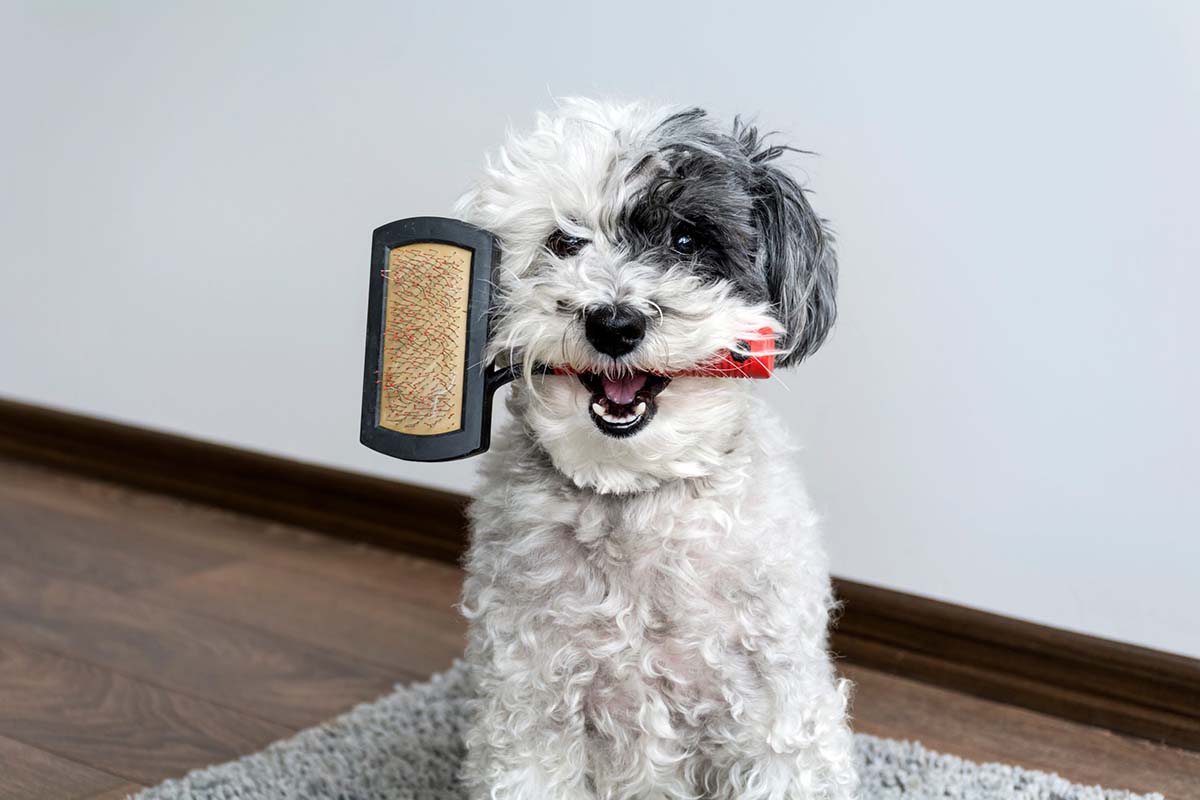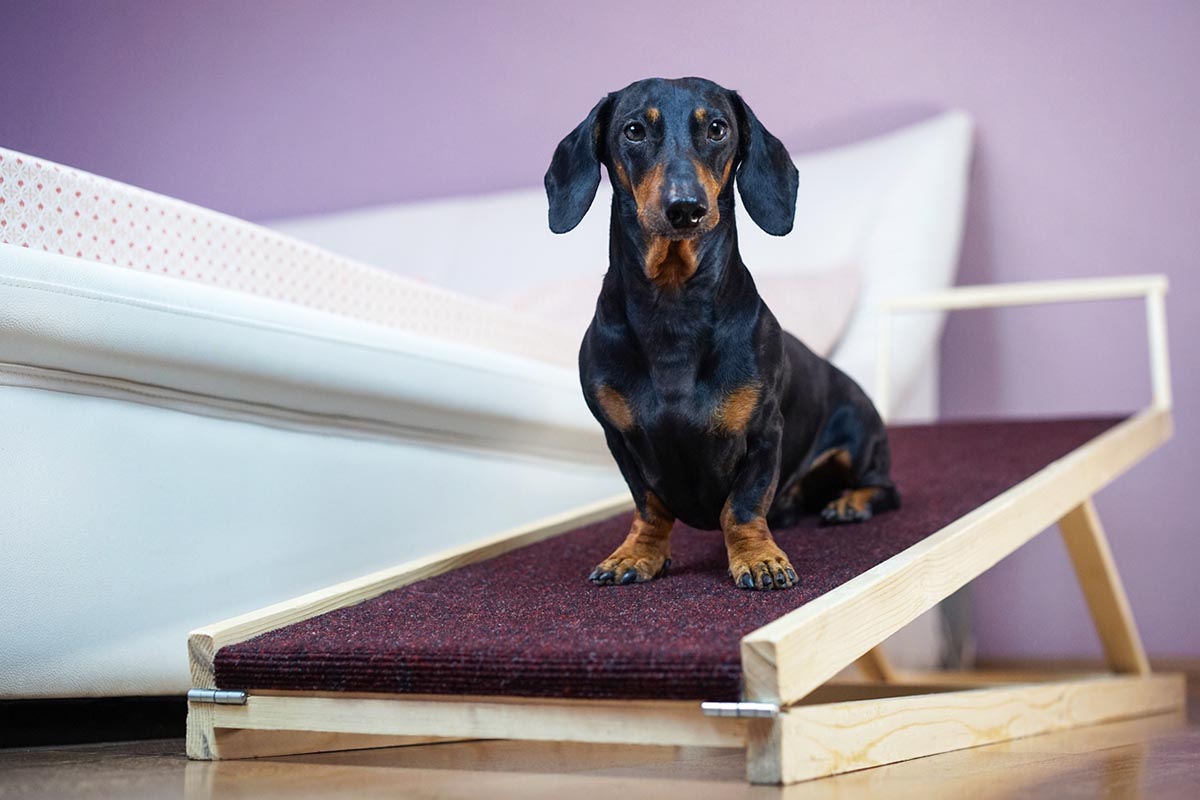How to Make a Dog’s Coat Shiny
Helping a dog get their coat soft and shiny begins with nutrition.
As the adage goes, “beauty is only skin deep.” But when it comes to your pooch, beauty may go a lot deeper. That’s because the condition of your dog’s coat and skin is also a great indicator of its health.
A healthy dog typically has a shiny coat without dandruff or greasiness. Illness or stress can cause a dog’s coat to become brittle or coarse and skin to become flaky and bumpy. So when you ask questions about how to make my dog’s coat shiny, the answers may be more holistic than you would have imagined.
It Begins With Dog Nutrition
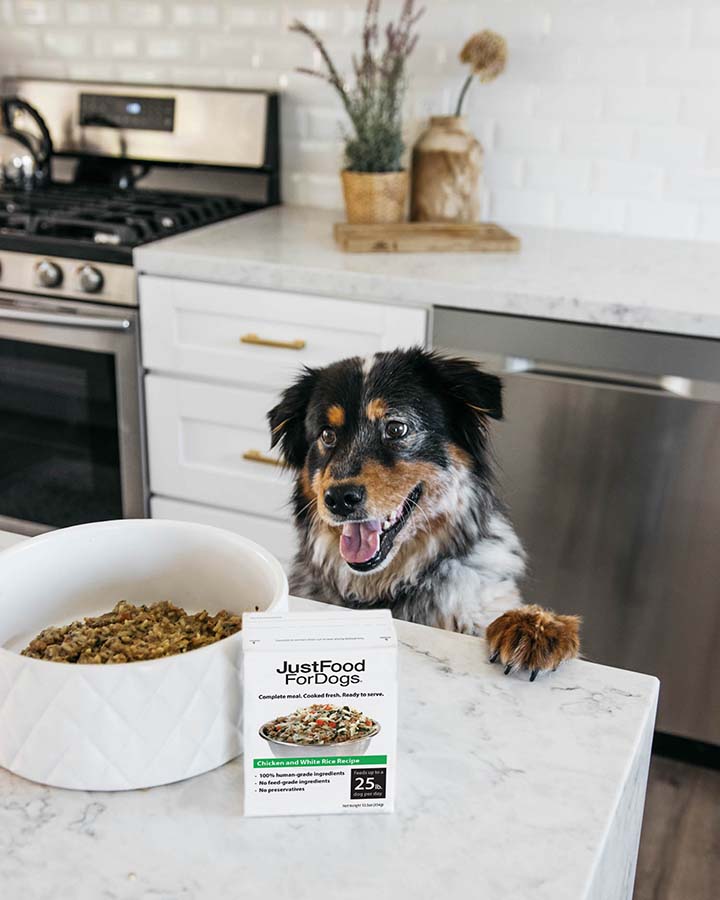
Want to know how to make a dog’s coat shiny? Start with your dog’s diet. A dull coat is most often due to a lack of proper nutrition. Veterinary experts agree that maintaining healthy skin and a gleaming coat requires a properly balanced diet of quality food. A good diet for your dog’s health includes quality proteins, carbohydrates, fats, minerals, and vitamins.
What dog food is the best answer to the question of how to make a dog’s coat shine? A diet that is based on whole-food ingredients and is nutritionally balanced for long-term feeding is an excellent foundation for a shiny coat and overall good health.
Natural Supplements for Shiny Coats
Natural supplements can also play a critical role in supporting a healthy, shiny coat for your favorite pup. Fatty acids, particularly omega-3 fatty acids, are known to promote healthy skin and a gleaming coat.
Scientific research has shown that algae and fish, in particular oily fish such as sardines and anchovies, contain vital nutrients that promote healthy skin and a soft, shiny coat. Omega-3 fish oil inhibits the growth of pathogens and controls allergies and skin diseases by nurturing your dog’s skin barrier.
An often-overlooked natural supplement is olive leaf extract. Called “nature’s antibiotic,” the olive leaf extract is a natural antiviral and antioxidant that has been proven to treat dermatitis, dry skin, and other types of allergies that can affect your dog.
A great example of the power of a high-quality whole food diet, combined with natural supplements, is Bella.
An adopted German shepherd and Rottweiler mix, Bella was plagued with severe skin allergies and ear infections that led to relentless itching and sleepless nights. She would scratch and lick so much that she would get skin wounds that led to skin infections.
Years of antibiotics, shots for environmental allergies, steroids, and medicated baths did little to curtail the problem. Kristen Pollock, Bella’s pet parent, switched her to a whole-food diet combined with fish oil and olive leaf supplements.
“I was able to stop all other treatments,” says Kristen. “It wasn’t long before she went from a dog with dry, itchy, wounded skin to a beautiful dog that received compliments about her gorgeous healthy coat.”
Don’t Forget Grooming
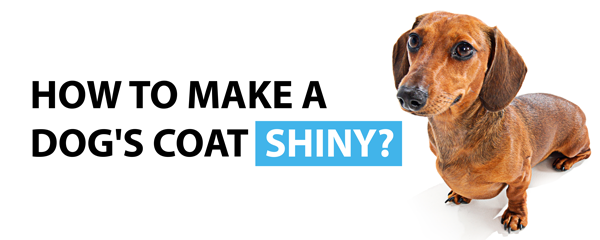
Another answer to the question “How to make your dog’s fur shiny?” is grooming. Dog grooming is not just for best-in-show winners. Whether your award-winning “best in house” pooch sheds or not, regular brushing can stimulate your dog’s natural oils while removing hair and dead skin.
Tip: Try to brush in both directions. This distributes skin oils that brighten the coat and makes hair shinier.
Don’t forget to bathe your dog. Many groomers recommend a coconut oil-based dog shampoo or oatmeal bath because it can help soothe dry and itchy skin. And don’t forget to inspect your dog for fleas and ticks, which can also affect skin health.
If All Else Fails, Visit the Vet
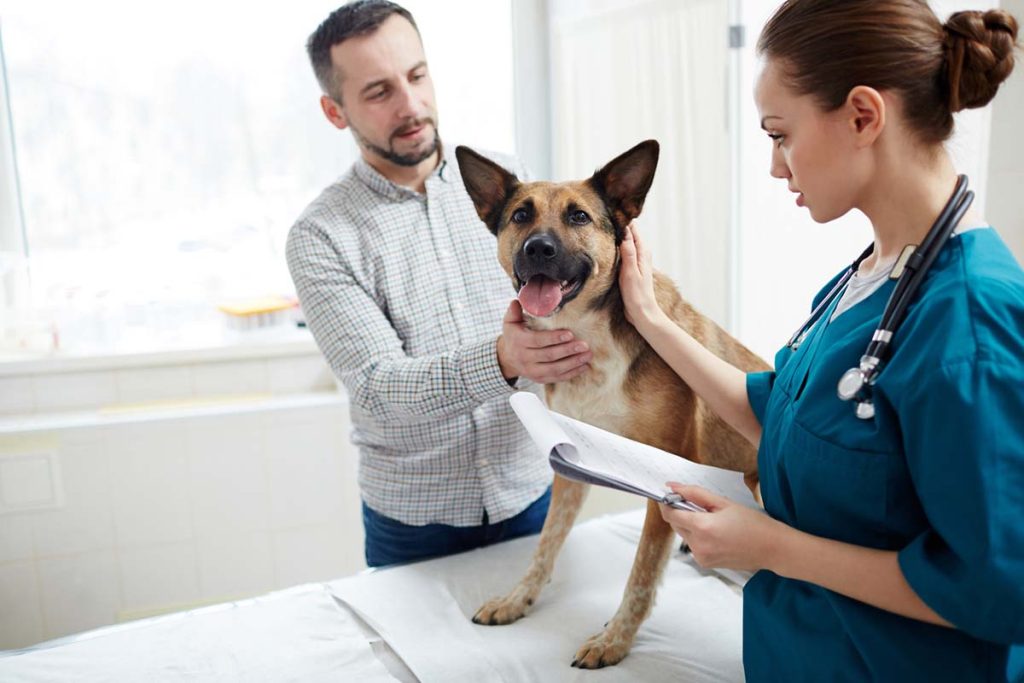
If after all this your dog’s coat health is still no good or he is suffering from hair loss, it may be time to consult your veterinarian. As we said earlier, the appearance of your pup’s coat may be the first indicator of an undetected health problem.
According to vets, these include hormone imbalance or other metabolic issues, digestive disturbances such as chronic diarrhea, or internal and external parasites.
So the answer to the question “How to make a dog’s hair shine?” is multifaceted. It can include a healthy diet, natural supplements, proper grooming, and regular veterinary care. As a result, you get the best of both worlds: better overall health and a head-turning soft and shiny coat for your furry friend.
This content is for informational use only and does not replace professional nutrition and/or medical advice, diagnosis, or treatment. It is not a substitute for and should not be relied upon for specific nutrition and/or medical recommendations. Please talk with your veterinarian about any questions or concerns.
Citations
Bauer, John E. 2007. “Responses of Dogs to Dietary Omega-3 Fatty Acids.” Journal of the American Veterinary Medical Association 231 (11): 1657–61. https://doi.org/10.2460/javma.231.11.1657.
“Horticultural Highlights Symposia and Workshops.” n.d. https://www.ishs.org/system/files/chronica-documents/ch5702.pdf.
